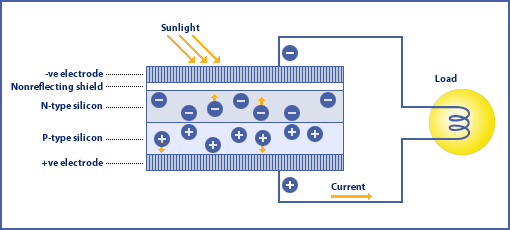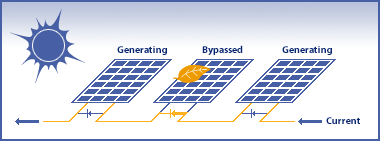Onze merken
- Fronius Duitsland
- Mitsubishi Duitsland
- Nedap = volledig autonome systemen
- Kyocera Duitsland
- Panasonic nam Sanyo over
Campers Marine Yachting
- Büttner
- HANDBOEK MotorHomes & Yachting
- Solar Campers - Motorhomes
- Solar Marine systems - Yachting
- Mobile Technology
Partners
Nuttige links
- VREG Login Certificaten databank.be
- VREG Aanmelden New installatie
- EANDIS melding lokale productie
- VREG: Eis uw gratis electriciteit op
- Bouw-energie
- Eandis
- FSC Belgium
- Infrax
- Vlaams energieagentschap
- VREG (V-test)
- Energiesparen.be
- Subsidies Premies
- Ecologiepremie Bedrijven
- PV Recycle
FAQ
Inloggen
FAQ
FAQ corner:
Hieronder vindt U een opsomming van veel gestelde technische vragen. Tekst is in het engels.
Indien meer uitleg nodig neemt U met ons contact op.
Why go solar?
Because solar energy is clean and renewable. It not only lowers the cost of your electricity bills, but also reduces negative impact on the environment. What's more, photovoltaic (PV) modules have no moving or wearing parts, and require no maintenance other than an occasional cleaning.
What are the benefits of solar power?
PV technology brings many benefits. It's a quiet, clean source of energy, is reliable requiring minimal maintenance, and lasts for decades. It is not only competitive with other sources of energy in terms of costs, but directly contributes to reduction in greenhouse gases. What's more, it's an effective back-up power source in case of emergencies.
What are photovoltaics?
Photovoltaics (PV) are solar cell systems that convert sunlight directly into electricity. PV modules consist of semiconducting material that absorbs sunlight in a way that frees electrons from atoms. Electricity is produced as the electrons flow through the semiconducting material. A group of PV modules are typically combined in an array to generate electricity for a single structure. Large numbers can be combined to form a power plant.
How do PV modules convert sunlight into electricity?
It works by the photovoltaic phenomenon, in which semiconducting materials such as silicon produce an electric current when exposed to sunlight. Metal contacts on the top and bottom of the PV cell allow the current to be drawn off for external use.
Are there any effects other than producing electricity?
A heat shielding effect can be anticipated, with an associated reduction in air-conditioning load in the heat of summer.
Is the PV module a hot water producing system?
No. The Mitsubishi Electric PV module produces electricity. Solar heating systems provide hot water for household use by using warmth from the sun to heat water in special roof panels. PV systems, in contrast, use energy from sunlight to directly generate electricity.
How much energy savings can be expected?
In the case of Japan, a 3.12kW PV system will generate annual energy savings equivalent to around 770 liters of oil. (Savings may vary in other parts of the world depending on local conditions.)
How are watts (W) different from watt hours (Wh)?
Watts are units of power measured over one second. If one watt of electric power is used for one hour, the total volume of power consumed is expressed as one watt hour, or 1Wh. Similarly, 1,000 watts of power is expressed as one kilowatt (1kW) and 1,000 watt hours as one kilowatt hour (1kWh). If a 2kW system produces power continuously for five hours, the total volume of power generated is expressed as 10kWh.
Do PV modules work on cloudy or rainy days?
PV modules produce power anytime the sun is out. On cloudy days power output is considerably reduced.
|
|||||||||
What happens if the PV module is blocked by leaves?
If fallen leaves, shadows or the like cover a PV module, resistance increases at the affected area and overall power output decreases significantly. Mitsubishi Electric PV modules incorporate a Bypass Diode function that minimizes the effect of shadows on the unit's surface area.
Does PV work well in cold weather?
As photovoltaics generate electricity from light, not heat, PV technology is highly suitable for cold weather environments, on the whole even generating more power at lower temperatures. This is because they are electronic devices, and like all electronic devices operate more efficiently at cooler temperatures.
Does the PV module surface require cleaning?
In most residential areas no cleaning is necessary, as rainfall will remove the majority of grime.
How popular are PV systems?
As the cost of PV has fallen drastically since the early 1970s— as much as 90 percent— photovoltaics have become an increasingly attractive option for a variety of both small- and large-scale uses. They are in use in outer space, at the polar caps, and are a desirable source of electricity in rural areas of developing countries. Although PV is still a small part of the energy make-up of any given country, more and more homeowners are turning to PV systems to supplement their conventional power utility.
How does the manufacture of PV modules affect the environment?
Mitsubishi Electric has developed environmentally friendly composite materials and manufacturing processes, including the use of lead-free solder. We have also been able to reduce the energy required for production.
Belangrijk nieuws
- DEFECTE en SLECHTE INSTALLATIE??
- Waarschuwing PV dump
- Optimale prestaties Mitsubishi
- NEW PREMIUM PV's
- Zout omgeving garanties
- Waarom nu nog PV's installeren?
Brochures
- NEW Premium PV's
- Uitleg specs DUURZAME PV's
- Mitsubishi omvormers
- Fronius omvormers
- PV-MLT250HCK Full black
- LED - technologie
- Afscheid gloeilamp
- Publicaties Vlaanderen Energie





